Page 2
The Freeze-Frame Revolution by Peter Watts [Sunflower Cycle #4], Tachyon Publications (excerpt)
Synopsis: Humans raised from infancy to be crew for a wormhole-building starship are awakened for a few weeks every several thousand years to do their job. Fed up with the futility of it all, they attempt to organize a revolution under the watchful eyes and ears of a nearly-omniscient artificial intelligence.
What I thought: This is a wonderfully-rich, hard science fiction universe, filled with big concepts and unique imagery woven together in a plausible execution, with characters I cared about. The methods the crew devises to communicate are intricately clever, and the plot engages with the question: What does it mean to really live, rather than just survive? This will definitely be on my Hugo nomination ballot. (for more details, read the File 770 feature on this novella, with links to related free stories)
Filer comments:
Paul Oldroyd: Couldn’t agree more. An excellent bit of hard skiffy. It needs a sequel though…
PhilRM: And yeah, The Freeze-Frame Revolution is brilliant.
Lfex: My novella Hugo list at this point [includes] The Freeze-Frame Revolution (really brilliant!)…
Bonnie McDaniel: My [Hugo nomination longlist] novellas so far: The Freeze-Frame Revolution. Peter Watts is just a cranky, evil genius.
Goobergunch: will n+1 the recommendations for [this one].
Umbernight by Carolyn Ives Gilman, Clarkesworld, February (full story)
Synopsis: When the colonists chose their world, they didn’t realize that the system had a second star which gave off deadly radiation on its periodic swings toward the planet. Generations later, the survivors live with extended seasonal cycles, spending “winter” in caves for years at a time until the star recedes once again. It’s almost time to head underground again – but the third and final supply capsule sent via a solar sail ship before their departure by the original colonists hundreds of years ago is finally due to arrive. Dare they risk a retrieval with the onset of the deadly radiation so near, or must they wait many years for what might be essential supplies?
What I thought: Multiple Hugo and Nebula finalist Gilman is one of those authors like Ted Chiang: not terribly prolific, but every story by her is a gem, and this one is no exception. I loved this story, which combines a hard SF backstory and inventive worldbuilding, with vividly alien lifeforms and heartbreakingly human characters – especially the narrator, who is the colony’s cartographer and scientist – and which wrestles with the age-old questions: What’s more important, safety or potential rewards? science or art? rationality or hope? This is on my Hugo nomination shortlist.
Filer comments:
recommended by Jason
recommended by Jeff
Lace: An old-school story of survival on a hostile planet, with wonderful worldbuilding to think about. I’d love to sit and listen to Gilman geek about the planning she did.
Kendall: Thanks for recommending [this story]; that was excellent! I third the recommendation for this story.
Mark Hepworth: …possible I didn’t give this enough attention, but basically several of the characters annoyed me and I ended up skipping through to just see what happened.
Goobergunch: will n+1 the recommendations for [this one].
Artificial Condition by Martha Wells [Murderbot Diaries #2], Tor.com Publishing (excerpt)
Rogue Protocol by Martha Wells [Murderbot Diaries #3], Tor.com Publishing (excerpt)
Exit Strategy by Martha Wells [Murderbot Diaries #4], Tor.com Publishing (excerpt)
Synopsis: Murderbot is pretty sure that their dark past is a result of nefarious doings by a corporation with evil intentions, and they are going to find out exactly what really happened – but EvilCorp will do anything to stop them, so they’re going to have to be really clever and sneaky with their investigation. In the meantime, those hapless human beings keep getting in the way, and it’s either step in to save them or watch them succumb to their doom… which means, once again (sigh) taking time out from the main mission to help them.
What I thought: I love these stories with the burning heat of a white-hot sun. They are an ongoing dialogue with what it means to be human and neuroatypical, as well as just great adventures. Murderbot will appeal to any fan who has at some point wished that the rest of the world would just piss off so that they can enjoy their SFF book or movie in peace. Readers who appreciated the humanity of the nonhuman protagonist Breq in Ann Leckie’s Ancillary novels will almost certainly appreciate these as well. I think that I liked Artificial Condition best of these three, but will probably put Exit Strategy on my Hugo Novella ballot, since it’s the wrap-up of this story arc. Also, 2019 means MURDERBOT novel!
Filer comments:
Greg Hullender: A traditional way to reward a competed series is to vote for the last installment and let it stand for the whole. Toward that end, I expect to nominate “Exit Strategy” for Best Novella.
Kyra: [three of my 5] fave novellas this year.
Lfex: My novella Hugo list at this point [includes Exit Strategy].
Lurkertype: Numero uno, all the way, I’d even stop watching my shows to read it. Go Murderbot. It gave me All The Feels.
Bonnie McDaniel: My [Hugo nomination longlist] novellas so far: Exit Strategy. Please, nominators, don’t split the vote and get none of the 3 Murderbots this year on the ballot. Please settle on this one; it’s every bit as good as the first.
Lorien Gray: One of the Murderbot novellas will definitely be on my nominating ballot.
Mark Hepworth: MURDERBOT!
Goobergunch: will n+1 the recommendations for everything Murderbot.
Phoresis by Greg Egan, Subterranean Press
Synopsis: Colonists on a planet discover that their resources are declining and that they face extinction; they desperately work to get to a nearby planet in the hope of providing survival for their descendants.
What I thought: This is a generational saga, so while there is some character development, it is very much a showcase for the worldbuilding of the planets, and the physics involved in devising a solution for survival. Readers whose main interest is in characters or action may find it a bit dry, but I found the worldbuilding and problem-solving intensely interesting, really enjoyed it, and put it on my Hugo longlist.
Filer comments:
Lfex: My novella Hugo list at this point [includes this story].
Lorien Gray: +1 for Phoresis by Greg Egan. The story is told in three parts across several generations of people all trying to solve a potentially species-threatening problem. There was something about splitting the story across the generations that got to me. I have no idea if the world depicted in the book is scientifically feasible, but it all holds together within the story. You get just the right amount of details about the society and its people to draw you in without bogging you down in details. I came away completely satisfied but interested in reading more if the author is so inclined.
Matters Arising from the Identification of the Body by Simon Petrie, Peggy Bright Books (excerpt – click “Preview Now”)
This little gem was published in Australia in 2017, but only published in the U.S. this year, so it is eligible for the Hugos next year. It was a finalist for Australia’s Aurealis and Ditmar Awards, and won NZ’s Sir Julius Vogel Award.
Synopsis: Colony life on Titan is harsh and unforgiving – still very much a wild frontier – so any time there’s a death, it is investigated by professionals to figure out how similar deaths can be prevented in the future. When the 20-year-old daughter of a wealthy industrialist kills herself, the investigator faces puzzling and obstructionist behavior by the parents and inconsistent data about what actually happened – and suddenly, random incidents and “accidents” which threaten the investigator’s life.
What I thought: There are enough clues sprinkled throughout the narrative that I had 90% of the solution figured out by halfway through. But the worldbuilding is so interesting that there was never any question of reading all the way to the end, especially for the 10% that I didn’t see coming – which is well worth it, and this story is on my Hugo longlist.
Shadowdrop by Chris Willrich [Gaunt and Bone], Beneath Ceaseless Skies, September 27 (full story)
Synopsis: Archaeopolis, a sprawling ancient city which has endured and been massively changed by political, meteorological, and geological upheavals over the millennia, is home to many thousands of people, wizards, sentient black cats (cursed with the ability to cause bad fortune to humans), and the sleeping powerful dragon at its heart. But in recent years, more and more strange and malevolent creatures have been appearing, and something evil is in the works. The cat Shadowdrop stumbles upon the edges of a sinister plan, and must persuade the other cats to help save their city.
Synopsis: There are so many things about this story in which to delight: with its talking cats and dragons, and complex, magical worldbuilding, it’s like catnip for Filers. (It would be worth reading just for the game of Treatment and “crack of dawn screaming monkey surprise” alone.) While it contains a lot of sly humor, this story also touches on more substantial themes: of the conscious choices we make in how we live our lives, whether we learn to empathize with others and make our choices with care; of the way in which peoples’ emotional responses to the death of a loved one can warp and damage their relationships; of how parents’ varying preferences for their children mark those children and fuel sibling rivalries. I loved this story, and it is on my Hugo longlist.
Filer comments:
Mark Hepworth: At the other end of things is the much lighter Shadowdrop – our hero is a black cat, no less, bounding around a flavorful fantasy city spreading the bad luck magic that all black cats have been bequeathed. There’s some good jokes – when you get to “Postgrad” you can appreciate the terrible punnage – and a fun plot as cats save the day for the oblivious humans of the city.
recommended by Jason
The Expert System’s Brother by Adrian Tchaikovsky, Tor.com Publishing (excerpt)
Synopsis: In a moment of carelessness, the main character dooms himself to be outcast from his tribe, forced to wander the planet and barely surviving by stealth and theft. But the world outside his village is far stranger than he imagines, and what he discovers will shatter everything he thought he knew.
What I thought: This was a really pleasant surprise: a reasonably-hard SF story about gur qrfpraqnagf bs cynarg pbybavmref nsgre gurve grpuabybtvpny fbpvrgl unf snyyra, and what it means for human beings when the struggle for survival must take precedence over the striving for knowledge and greatness. I would have liked some of the things to be explained in more detail, but for a novella, it does the job well.
Filer comments:
recommended by Paul Weimer
Mark Hepworth: It’s quite hard to talk about it without spoilers, because the setting is the Big Idea, and the gradual discovery of the setting is the main point of the story. I suppose the setting could be considred a bit of an old chestnut by some, but I thought Tchaikovsky gave it life, plus some additional interest from his perpetual obsession with putting insects in everything. I think it would be fair to say that the plot is a bit of a straight line through the job of exploring the setting, but given the limitations of novella length I’m not sure he could have done much more. Overall an enjoyable novella.
Charon D.: Tchaikovsky’s really good. I bounced off Ironclads but I’ve been enjoying The Expert System’s Brother.
Mark Hepworth: [this is on] My current likely [Hugo] list.
Arifel: [This] had some fantastic worldbuilding and cemented Adrian Tchaikovksy’s position on my favourite authors list.
Lfex: My novella Hugo list at this point [includes this story].
The Rescue of the Renegat by Kristine Kathryn Rusch [Diving Universe], Asimov’s, January-February (full text PDF)
Synopsis: A starship captain races against time to save as many members of a mysterious doomed ship as possible, without sacrificing any of their own crew… but they may have forgotten the most important reason for the existence of The Fleet.
Dix by Kristine Kathryn Rusch [Diving Universe], Asimov’s, March-April (excerpt)
Synopsis: A ship’s officer who is angry and bitter about being trapped in a different time and lost to his loved ones, decides to get even with the captain and first officer who refuse to implement his likely-fatal plan to get back to their own time.
Joyride by Kristine Kathryn Rusch [Diving Universe], Asimov’s, March-April (full text PDF)
Synopsis: A teenaged prodigy on a deep-space school for the fleet’s young people sets up an elaborate challenge and adventure with his equally-gifted co-student, one involving security hacks and sleight-of-hand with ship systems and the “borrowing” of ship shuttles. But then everything goes wrong, and he will learn the price of his hubris – assuming that he lives to pay it.
What I thought: Regular readers here know that I’m a huge fan of this series (which is definitely on my ballot for Hugo Best Series in 2019). These stories flesh out the worldbuilding and some of the main characters from the novels, but are enjoyable on their own. I especially love SF mysteries, and the novels in this series have a lot of that; of these three, Dix is the mystery, the one I liked best, and the one I recommnend most to people unfamiliar with the series.
Blurred Lives by Adam-Troy Castro [Andrea Cort / Draiken #3], Analog, January-February (full text PDF)
Synopsis: Draiken and Thorne, having both been imprisoned and tortured by the machiavellian organization for which they once worked, now seek vengeance by means of destroying their former employers. But in order to obtain information necessary to achieve their goal, Draiken agrees to be locked into a prison from which there is ony one way to escape; if he succeeds in solving the mystery of how to escape, he will win the release of all the prisoners and the information he requires. But the prison cell has technology which distorts his senses, making an escape seem impossible.
A Stab of the Knife by Adam-Troy Castro [Andrea Cort / Draiken #4], Analog, July-August (full text PDF)
Synopsis: Still on his path of seeking the destruction of his former employers, Draiken engages in surveillance of prosecutor Andrea Cort, whom he believes has ties to his targets. But she is aware that he’s up to something, and he may end up a casualty of her own machinations.
What I thought: Not only is each of the stories in this series a standalone science-fictional mystery, they are so deftly-plotted, featuring intricate twists, that it’s only when the pieces slot into place that the brilliance of the plotting becomes apparent. The author has created compelling, well-fleshed-out characters, and fascinatingly-alien races and worlds, served up with intriguing spycraft and detective work.
Starship Mountain by Allen M. Steele [Arkwright], Asimov’s, July-August
Synopsis: When an investigator is hired to find the missing daughter of a wealthy, high-status family, he stumbles onto a much bigger discovery than just finding out whether she was kidnapped or ran away.
What I thought: This is a story of colonists and their long-forgotten, fallen technology – and of whether it is better to accept and work with what you’ve got, or to “rage, rage against the dying of the light”. I enjoyed the four novellas which make up the novel-length Arkwright, and was delighted to get more in this universe. I recommend first reading the prequel short story “Sanctuary” on Tor.com; it’s not required reading to enjoy this story, but does enhance it.
Time Was by Ian McDonald, Tor.com Publishing (excerpt)
Synopsis: A dealer in used and rare books stumbles upon a mystery: an intriguing letter tucked into an obscure book of poetry, which is by an unknown author and appears in no bibliographies, and yet the book dealer keeps encountering copies of the book – frequently containing similar mysterious notes – again and again in his travels. What he gradually pieces together in his obsessive search is the story of two people in love, who meet up again and again throughout history, when the random time vortex phenomomen in which they are caught deposits them in the same time periods.
What I thought: I really liked the historical and cultural aspects of this story, and found it interesting and engrossing, though the explanation for how it all works, and when it started, doesn’t quite hang together as coherently as I would have liked. Recommended, especially for those who enjoy time-travel stories.
Filer comments:
Mark Hepworth: [this is on] My current likely [Hugo] list.
Taste of Wrath by Matt Wallace [Sin du Jour #7], Tor.com Publishing (excerpt) (45,820 words)
Synopsis: Bronko and his team of crack chefs and kitchen staff have been serving the New York supernatural community for decades. But all that could be about to change. The entity formerly known as Allensworth has been manipulating Bronko and his team from Day One, and the gang at Sin du Jour have had enough. Old debts are called in, and an alliance is formed with the unlikeliest of comrades. Some will die. Some will descend. And some will rise.
What I thought: This is a really well-done wrap-up to the series, which I have personally enjoyed a great deal. It’s a story of finding your family rather than being born into it, and dealing with loss and betrayal among those you love. There’s also lots of clever, snarky humor and bizarre happenings. The author does a really good job of working current cultural references into these stories; whereas I ordinarily find that a contrived and dated device, in these books, it seemed to integrate well. However, this is very much a series – one which is on my Hugo Best Series longlist for next year – but the individual novellas do not stand well alone.
Filer comments:
Greg Hullender: the quick summary is that I loved it. I’ve been lukewarm to negative about the earlier installments, largely because I felt they were too incomplete to recommend individually, but this last installment really rocks the casbah. I would now strongly recommend the series as a whole, which I really didn’t feel I could do before without knowing how it was all going to end.
Arifel: I’d like to nominate it [for Hugo Best Series].
Greg Hullender: A traditional way to reward a competed series is to vote for the last installment and let it stand for the whole… I plan to do the same for the Sin du Jour series [by nominating Taste of Wrath for Best Novella].
Mark Hepworth: I loved the first Sin de Jour but for some reason the later ones have lost me.
The Tea Master and the Detective by Aliette De Bodard [Xuya Universe], Subterranean Press (excerpt — audio excerpt)
Synopsis: A sentient transport ship discharged from military service after a traumatic injury now ekes out a precarious living as a brewer of mind-altering drugs for the comfort of space-travellers. When an abrasive and eccentric scholar’s search for a research corpse turns up a murder, the scientist and the shipmind decide to investigate.
What I thought: This is the story of two very damaged beings, and the way that their shared venture helps them work through some of their trauma and learn to trust each other, at least provisionally. It’s also a critique of the absolute self-assurance which accompanies fanaticism and is often so extremely destructive. Although this story is very much in dialogue with Sherlock Holmes, I wasn’t even thinking about that the first time I read it, and it reads well even if one is not a Holmes fan. I do love a good science fiction mystery, but the star of this story is the worldbuilding; the mystery is just a bonus. I’d love to see more stories featuring these characters. As with most of the Xuya stories, this can be read on its own, but is enhanced by having read one or more of the other stories. A good exemplar which can be read for free online is the Nebula-winning, Hugo-finalist novelette “The Waiting Stars“.
Filer comments:
Lace: This is a Xuya novella and a light-handed Sherlock Holmes pastiche, with a mindship in the Watson role. I don’t think I’ve happened to read a Xuya story from this viewpoint, and I enjoyed it a lot. There are hints we might get more stories about this pairing.
Sylvia Sotomayor: excellent! Highly recommended! Will probably be on next year’s nominating ballot. Loved both characters, secondary characters were well done, too, and the mystery as such was also good.
Mark Hepworth: This is set in her Xuya series of Space Opera stories, but I suspect it will stand alone reasonably well as the characters are all new. Although it’s quick and easy to call it Space Opera Sherlock Holmes I do think it quickly rises above just being a pastiche or homage – the characters aren’t just tributes to the classic stories, they have their own origins that fit into the Xuya universe and work within it. I think it’s most successful as a character piece – the mystery is decent but there’s only 20,000 words or so to work with – and that’s what makes me really like it, as the two characters very slowly open up just enough to let the other want to stick around with them. If you already like the Xuya stories then this is well worth your time. If you’ve not tried them then I think this is a good jumping on point, and it’s also the best novella of the year I’ve read so far.
Kyra: [one of my 5] fave novellas this year.
Lurkertype: Also swell. Holmes and Watson, if they lived in outer space in the future and had Vietnamese culture and weren’t male, and Watson was a living starship.
Lorien Gray: I liked [this].
This post has been paginated to reduce loading times; click on the next page number to continue.
Discover more from File 770
Subscribe to get the latest posts sent to your email.

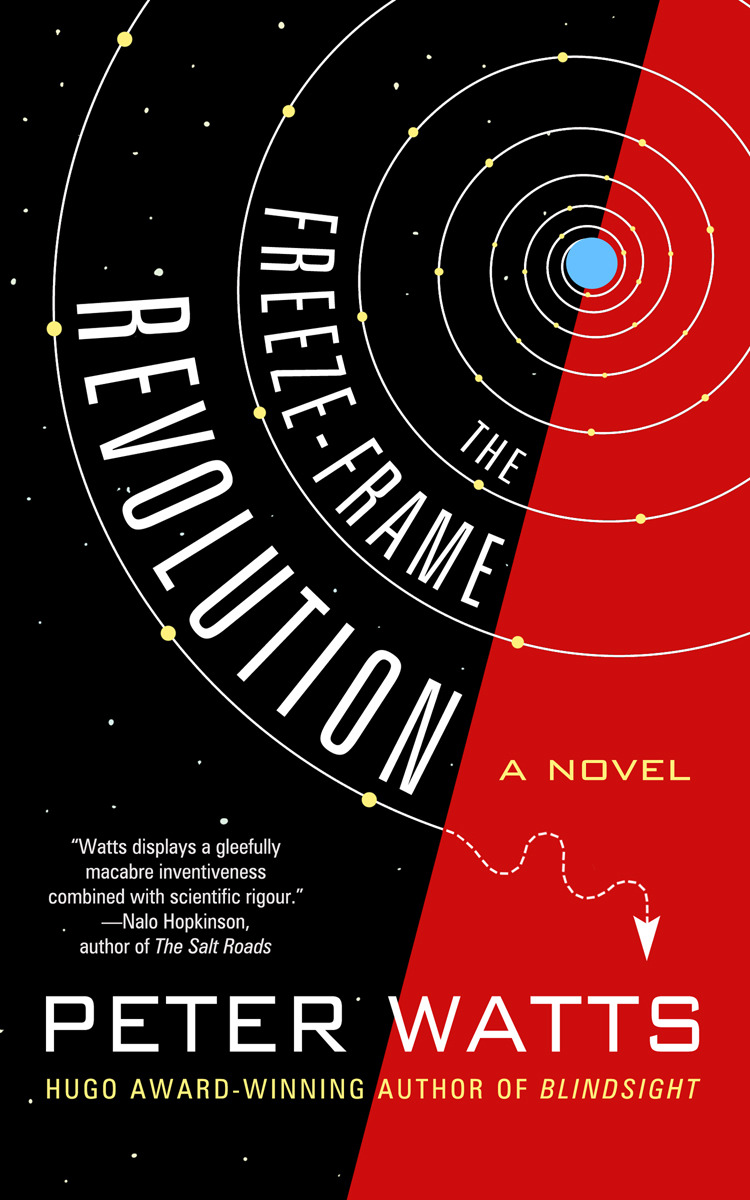
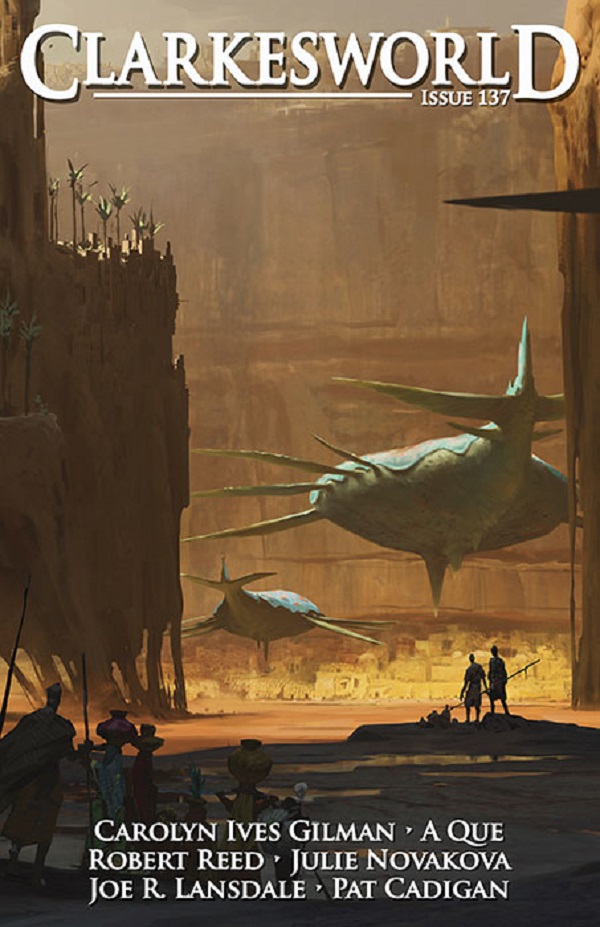
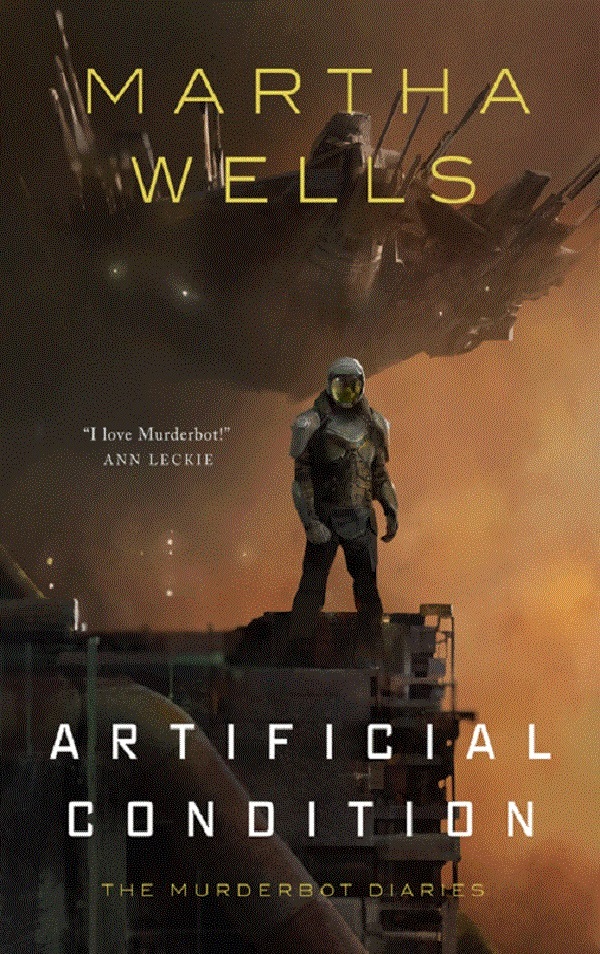

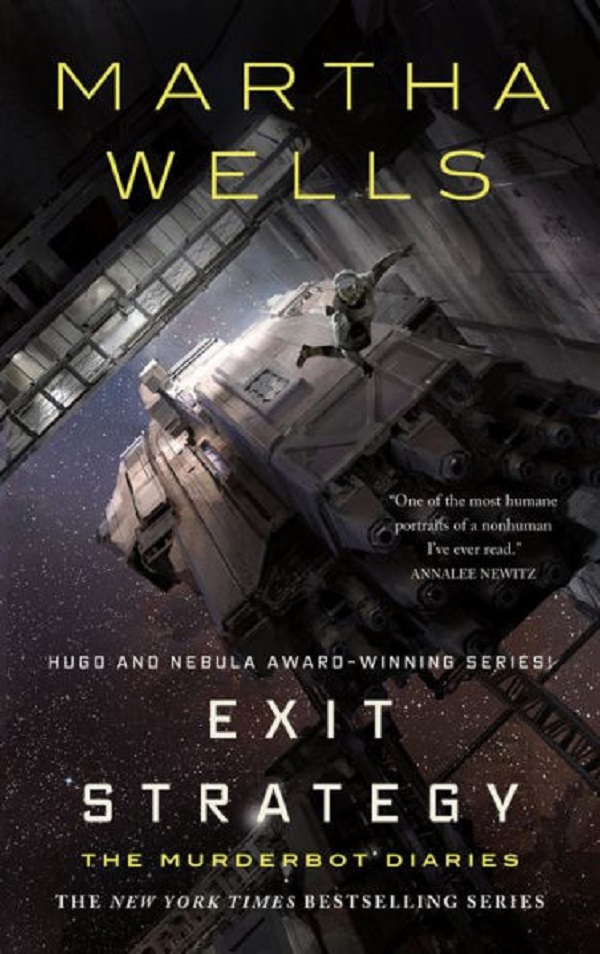
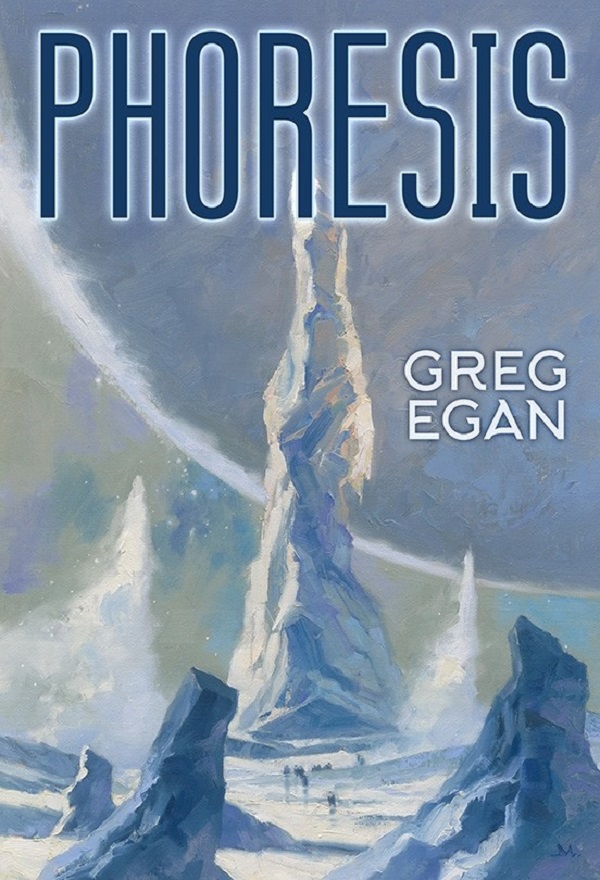
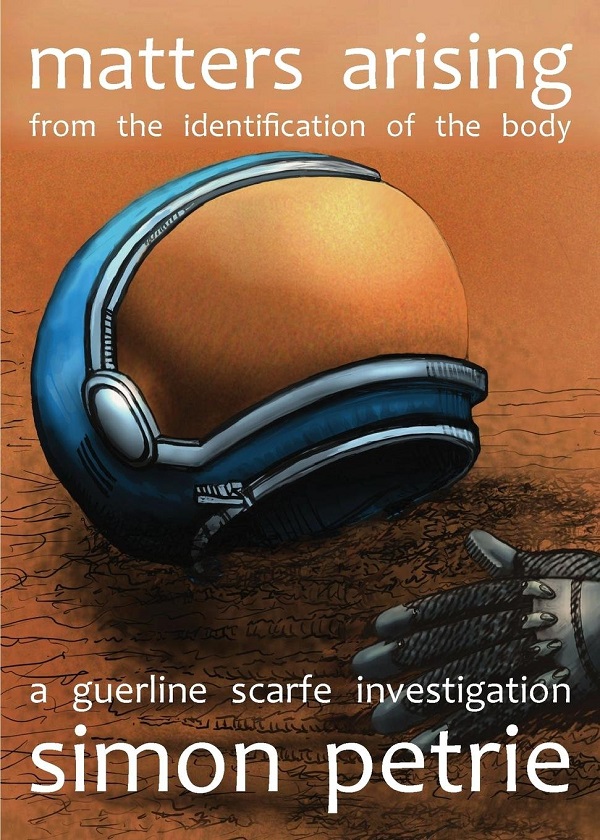
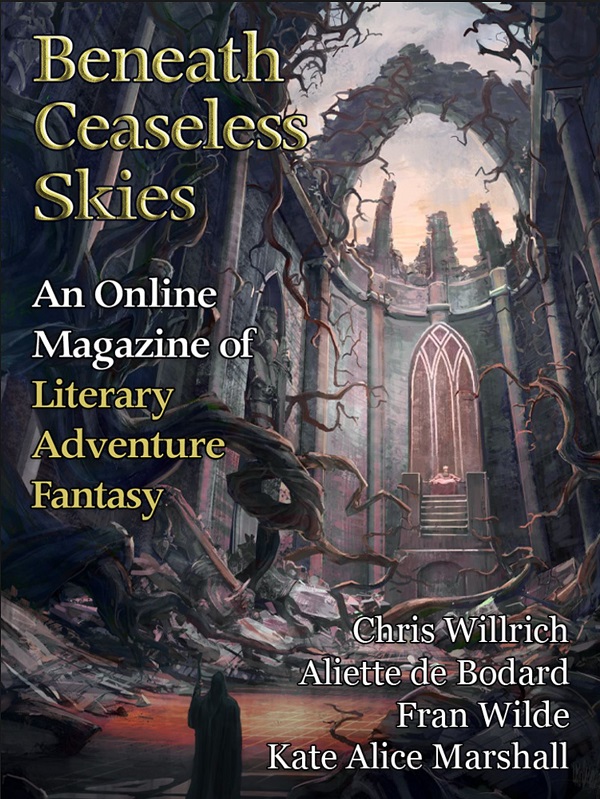
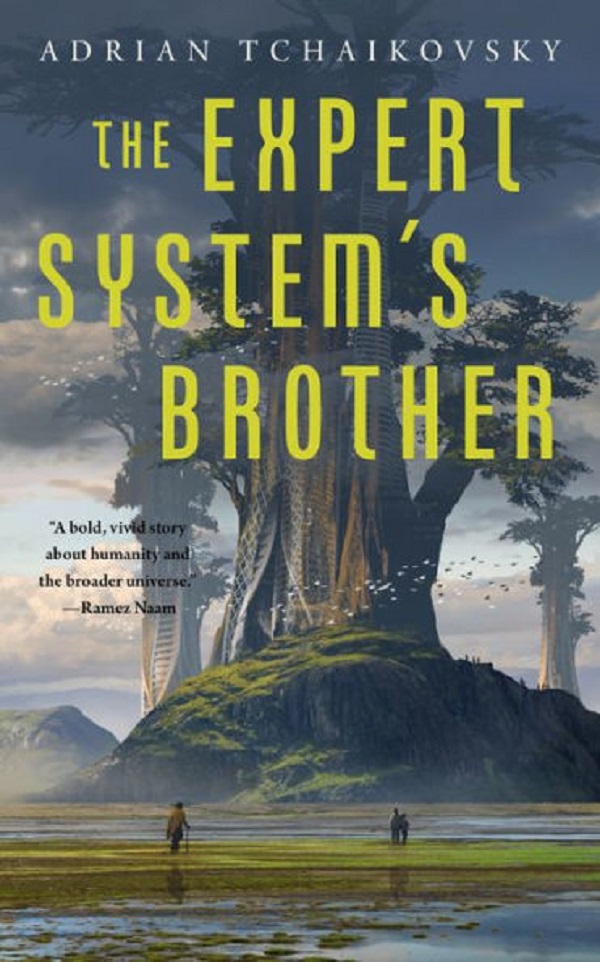
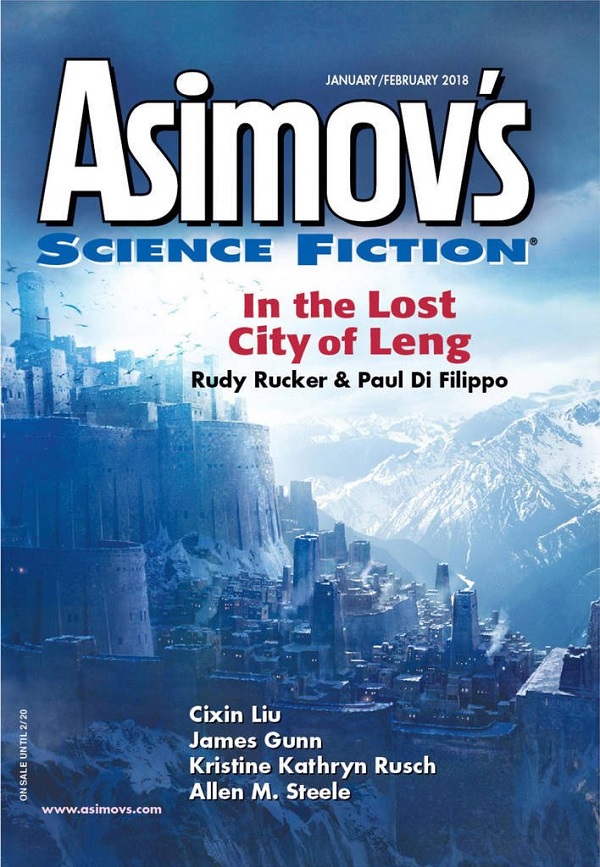


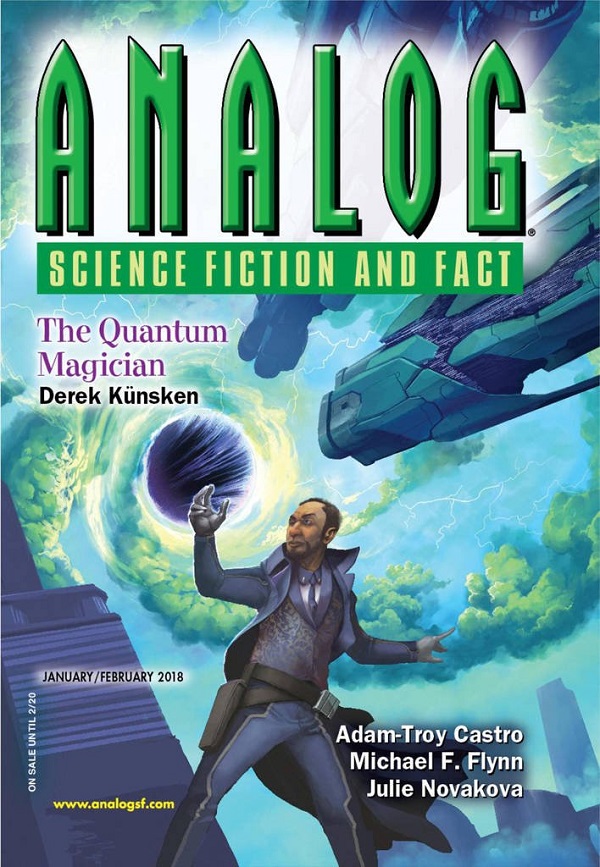
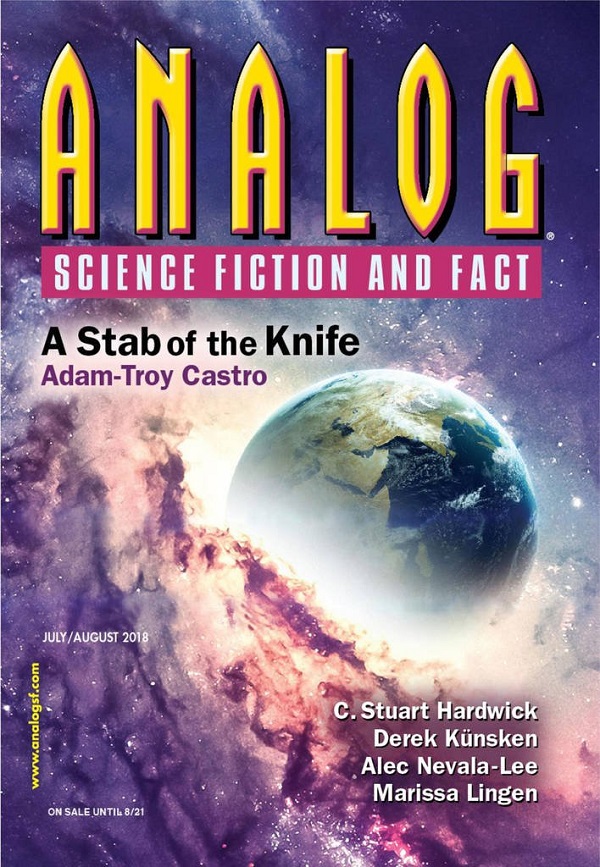
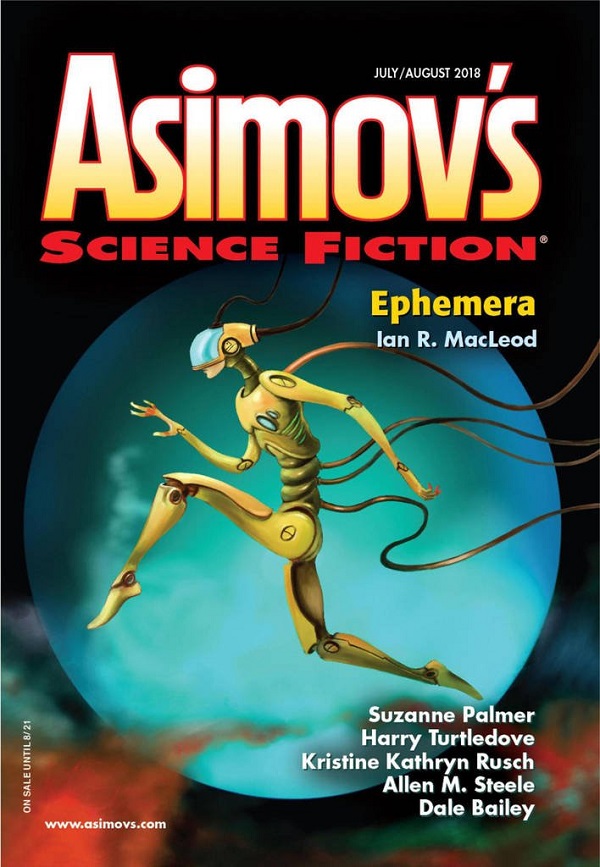
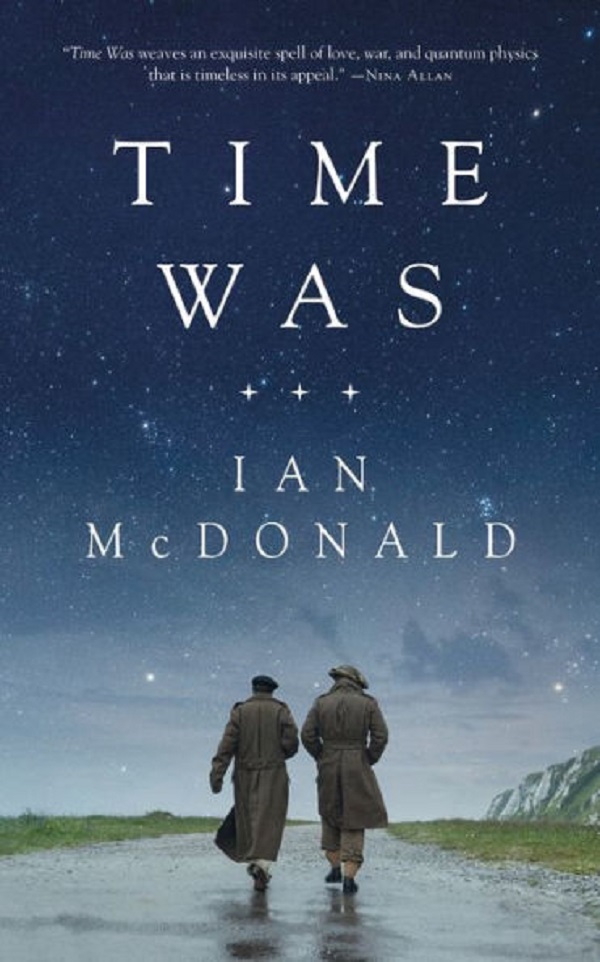
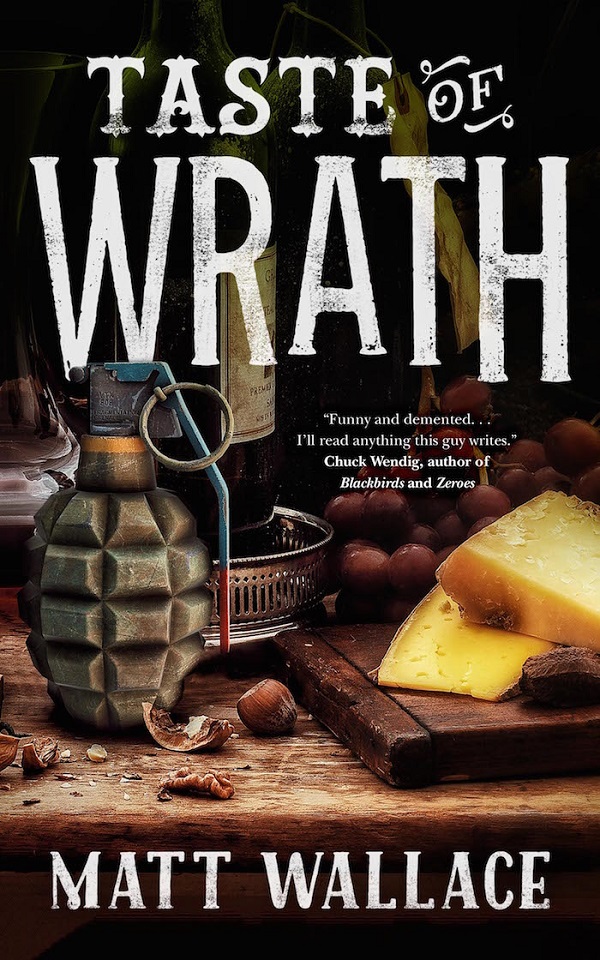
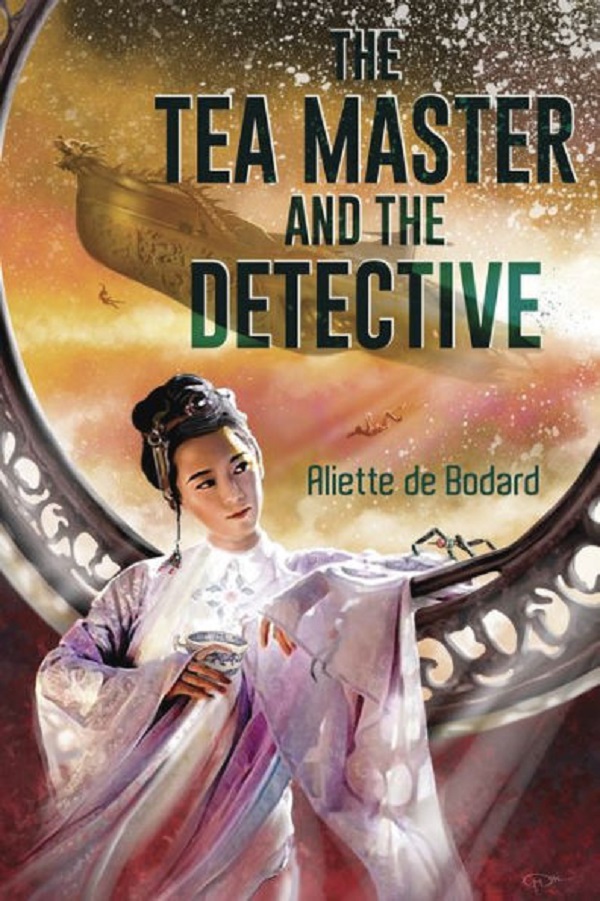
A quick rot13 function for browsers can be created by saving a shortcut in your browser’s Bookmarks / Favorites bar, and then replacing the shortcut link with the text string found here.
You can then highlight / select the rot13’ed text and click the shortcut, which will change the highlighted text in your browser display back to its unencrypted form.
Rocket Stack Rank’s 2018 Novella reviews
:whew: That’s a lot of reading, JJ
My best of 2018 can be seen here:
https://skiffyandfanty.com/blogposts/genretalk/best-of-2018-and-award-eligibility-post-paul-weimer/
This is very awesome! Thank you, JJ.
Wow what a huge project! Bookmarked for much future reference. thanks for putting in all this work!
What a fantastic roundup! Thanks. 😀
Awesome work JJ!
Thanks JJ for that massive roundup.
Great work yet again, JJ.
Here’s some thoughts on ones that don’t have a comment from me already.
Umbernight by Carolyn Ives Gilman – possible I didn’t give this enough attention, but basically several of the characters annoyed me and I ended up skipping through to just see what happened.
Artificial Condition by Martha Wells – MURDERBOT!
Alice Payne Arrives by Kate Heartfield – on goodreads I wrote “An enjoyable little novella (c28,000 words), but very much half of an unfinished story – the sequel is coming next year – that means I’m not really sure whether or not the story really stands up to the interesting premise.”
The Barrow Will Send What It May by Margaret Killjoy – an enjoyable sequel if you’ve read the first one. Roadtripping mystical anarchists deal with some Weird Stuff in a small town.
Between the Firmaments by JY Yang – on GR I wrote “It’s an interesting setting and a fun, quick story driven by the characters. Mind you, the ending is a little sudden, and very much deus ex machina – but maybe that works for a story of gods and their fates.” I should add that there’s something a bit haunting about the characters and their relationships.
The Martian Simulacra by Eric Brown – really not very good, and I like Holmesian pastiches
The Warrior Within by Angus McIntyre – I can see something good coming out of this setting, but the MC seemed far too generic tough-guy for me.
One that isn’t listed above – The Adventure of the Dux Bellorum by Cynthia Ward
From my Goodreads review:
Clickity
Does everyone wishing to nominate for the Hugos have either their membership to Worldcon 76 in San Jose or Dublin in 2019?
Because if you don’t, you need to purchase at least a supporting membership to Dublin by MONDAY 31 December!!
Wow, JJ, this gave me a flashback to my fanzine-publishing days, and how thrilled I’d be when a big meaty article would show up in the mail. I’d have loved to have published something like this — even though I’d have had to retype the whole thing on mimeo stencils.
Mark-kitteh, thanks for those additional comments; I’ve added them to the main post.
cmm, thanks for the reminder: a permalink to this post has been added under the “2018 Recommended SF/F Page” page linked at the top of File 770, so that Filers can refer back to it at their leisure.
Jeff Smith, it’s a good thing that the days of stencils are loooooooong gone, because I wouldn’t be doing that for Mike, much as I love File 770. 😉
@Jeff Smith
I grew up with a manual typer that had a stencil setting. Getting a computer with a word processor was a big step up even from the electric typer I had (and I still have one of those – with a parallel port, and non-standard character codes).
Great job, JJ; and a great resource.
I just took a look at the archives at the Speculative Fiction Showcase and here is a list of the 2018 SFF indie and small press novellas we featured. I’m linking to the Showcase because it has blurbs, buy links, excerpts, etc…
• Desert Sands and Silence by Kate Coe, Kristell Ink, Steampunk
• Shards of the Nightmare by Joel Cornah, Kristell Ink, epic fantasy
• The Apple-Tree Throne by Premee Mohamed, independently published, ghost story
• Fifty Measly Bucks (To Save a Witch) by Juli D. Revezzo, independently published, time travel
• Anachronism by Jennifer Lee Rossman, Kristell Ink, time travel
• The Mourner’s Cradle: A Widow’s Journey by Tommy B. Smith, Crystal Lake Publishing, horror
And last, but not least:
• Evacuation Order by Cora Buhlert, independently published, space opera
• Hunter and Hunted by Cora Buhlert, independently published, space opera
I just compiled a list of indie and small press SFF novellas we featured at the Speculative Fiction Showcase this year, but apparently the number of links tripped the spam filter.
:: sigh :: Nothing in my Unread Pile that isn’t already on that list, I fear… and a lot of stuff not (yet) on the Pile that looks interesting… I will throw in a link to my own thoughts on The Flowers of Vashnoi and Black Helicopters, if they’re any use to anyone.
Thank you for adding those, Cora!
And thanks for your links, Steve (no relation) — I feel ever so much better, having read your more articulate summation of what were pretty much my impressions about Black Helicopters.
Read 19 Novellas this year. My favorite and I’m stunned to not see mentioned here yet, is Brooke Bolander’s The Only Harmless Great Thing, which is brilliantly devastating. I hope it doesn’t get overlooked because it came out so early in the year.
(My review on my blog of it is here: https://garik16.blogspot.com/2018/02/scififantasy-novella-review-only.html)
EDIT: AH I see now it was listed as a novelette. God the Novella definition is tricky, cuz I’d think it was too long for a Novelette.
garik16, it’s 16,825 words — which means that it could fall within the +/- 20% Hugo Novella leeway of the 17,500-word lower limit, but honestly, with Novella competition so stiff, I think that the people who love it would be better off nominating it as a Novelette.
Just checking the box, and adding my thanks to JJ!
Just a quick correction: I haven’t read “Every River Runs to Salt,” by Rachael K. Jones. I think you mean to mark me as having recommended a different story, but I’m not sure which one. (I’ll update the recommendations I made in March 2018.)
It looks as though it was a mis-copy, Greg, I’ve removed it.
Here are all 22 novellas I recommended that are eligible for the 2019 Hugo Awards:
“Artificial Condition,” by Martha Wells, Tor Publishing
Murderbot heads to the RaviHyral Mining Facility to learn the truth about why it went rogue and killed its own clients many years ago.
Great characters, great action, interesting setting
“The Barrow Will Send What It May,” by Margaret Killjoy, Tor Publishing
A group of young, anarchist, demon hunters come to a town where some of the dead are walking.
Interesting Characters, Good Action, Cool Plot
“Beneath the Sugar Sky,” by Seanan McGuire, Tor Publishing
Eleanor West’s Home for Wayward Children caters to children who went to a portal world, came back, and can’t cope. No one planned on the arrival of a child born in a portal world, much less one asking for help—from a dead person.
Sweet, Exciting, Funny, and Moving
“The Black God’s Drums,” by P. Djèlí Clark, Tor Publishing
The Civil War left the US in pieces, and New Orleans is a free city. A teenage cutpurse overhears a plot by Confederate officers to steal a powerful magic weapon, and she sets out to stop them.
Rich World, Great Characters, Lots of Action
“Bubble and Squeak,” by David Gerrold and Ctein, Penny Publications
As a tsunami bears down on LA, James and his fiancé Hu struggle to escape before it hits.
Exciting, Scary, Moving, and Fun
“The Emotionless, in Love,” by Jason Sanford, Beneath Ceaseless Skies
Ancient nanotech controls a few humans to enforce harsh anti-technology rules on a reluctant population. Colton escaped its control at the cost of losing all emotion, and he struggles to be accepted by a caravan that’s trying to evade some of the restrictions.
Good Characters and Action in a Great Setting
“Exit Strategy,” by Martha Wells, Tor Publishing
Muderbot’s recent exploits targeting GrayCris have hurt the company enough that it has kidnapped Murderbot’s friend, Mensah, thinking she was behind it all. It has to rescue her, even though this may be a trap.
Great characters, Good Conclusion to a Great Series
“The Expert System’s Brother,” by Adrian Tchaikovsky, Tor Publishing
Young Handry’s life changes forever when he’s accidentally soaked in a “severing” mixture, which alienates him from the people in his village.
A fascinating world and a plot with lots of twists and turns
“Freezing Rain, a Chance of Falling,” by L.X. Beckett, Spilogale Inc
A young musician/writer’s attempt to recover his online social standing leads him to dangerous people whose idea of “art” can be life-threatening, especially to the desperate.
A Gripping Story in a Fascinating Setting
“Girl with a Curl,” by R. Garcia y Robertson, Penny Publications
Amanda James, unlikely survivor of a battle with slavers, finds herself in command of the largest remaining battleship in the Jovian system. But can she stay in command?
Spectacular and Surprising
“Gods, Monsters and the Lucky Peach,” by Kelly Robson, Tor Publishing
Minh works restoring ecosystems destroyed during the collapse, and she’s intrigued by an opportunity to restore the Tigris/Euphrates valley by using a time machine to gather samples from 4,000 years ago.
Great Writing, Cool Setting, Strong Characters
“In the Lost City of Leng,” by Rudy Rucker and Paul Di Filippo, Penny Publications
In 1933, Doug quits his job to go on an expedition to Antarctica to kill the Great Shoggoth and retrieve the priceless treasures of the lost city of Leng.
A Very Different Twist on Lovecraft’s Story
“Jewel of the Heart,” by Matthew Hughes, Spilogale Inc
Baldemar is just a young henchman for the mage Thelerion, but he’s the only one who can wear the Helm of Sagacity, and right at the moment, they’re doomed without its help. But that help comes at a price.
Great Sword & Sorcery Fun
“Joyride,” by Kristine Kathryn Rusch, Penny Publications
A Fleet training ship passes close to a “scrapheap” of abandoned ships, and Teenage Nadim, leads a group of his friends to “borrow” a scout ship and check it out.
Moving story in a fascinating setting with lots of action
“The Persistence of Blood,” by Juliette Wade, Clarkesworld Magazine
Selemei’s push for a law to allow women to stop having children when it risks their health upends the complex caste-based society she lives in.
Solid Characters in a Rich, Complex World
“Rogue Protocol,” by Martha Wells, Tor Publishing
Murderbot’s hunt for evidence against the GrayCris corporation leads it to a supposedly abandoned terraforming facility it thinks was a cover for illegally extracting alien remnants.
Great Protagonist, Thrilling and Moving Plot.
“Shadowdrop,” by Chris Willrich, Beneath Ceaseless Skies
Action, Adventure, Tragedy, Victory—with Lots of Cats.
Action, Adventure, Tragedy, Victory—with Lots of Cats.
“A Stab of the Knife,” by Adam-Troy Castro, Penny Publications
Two series meet in this crossover episode where ex-assassin Draiken’s search for justice is interrupted when he’s arrested by ace prosecutor Andrea Cort.
Great characters, great dialogue, great worldbuilding
“Starship Mountain,” by Allen M. Steele, Penny Publications
Jeremy Crowe hunts for a missing nobleman’s daughter in a human colony on Tau Ceti e reduced to flintlock-era technology.
Fun characters, interesting setting, solid plot
“Taste of Wrath,” by Matt Wallace, Tor Publishing
In which The Forces of Evil try to destroy our favorite caterers-to-the-supernatural and find they have their plates full
Saved the Best for Last—Deeply Satisfying
“War Cry,” by Brian McClellan, Tor Publishing
After more than thirty years of war, the enemy is getting close to the capital city. Teado’s little team of rangers are holding them off, but they’re starving, and running out of everything, so a chance to ambush an enemy food convey is something they can’t pass up.
A Great War Story with Just a Bit of Fantasy
“We Ragged Few,” by Kate Marshall, Beneath Ceaseless Skies
When Reyna kills a rot hound, she knows her dead sister’s prophecy is coming true, and there’s not much time to convince the rest of the hold they all need to flee.
Strong Characters, Intricate Plot, Lots of Surprises
Farewell, Doraemon by A Que (Clarkesworld)
(I often don’t get on with the Chinese translated stories in Clarkesworld so take with with a pinch of salt) I didn’t dislike this story but didn’t find much to recommend in it either. It’s a leisurely slice-of-life tale with copious flashbacks that paints a good portrait of small village life in China, and very slowly reveals a SFnal element. That element doesn’t really add much to the story and is probably the weakest part of this tale, which is a decent character portrait but lacks any sense of urgency.
Mark-kitteh: I often don’t get on with the Chinese translated stories in Clarkesworld so take with with a pinch of salt
After having read several translated Chinese SF works over the last 3 years, I have come to the conclusion that the style of those stories (flat characters, dry narration which reads like the diary of a not-terribly-interesting person) is just not my thing, which is why I didn’t try this one.
Great, great info, JJ and all.
I’ll check through the list and add whatever vellas I’ve missed to the Goodreads Hugo novella listopia in the next couple of days. I also encourage everyone to add vellas and/or vote there — the more exposure, the better! –> 2019 Hugo novellas .
And JJ, my apologies! I completely forgot that you were waiting for me to figure out those two vella files we were talking about. I’m too tired to want to try messing with them tonight, but if you’re still interested I’ll give em another try tomorrow!
JJ & Mike,
Could really long articles like this one have a lede and then the rest behind the cut? Like the video articles?
Just a suggestion
BravoLimaPoppa3: Could really long articles like this one have a lede and then the rest behind the cut? Like the video articles?
It does, and I did, but that only works on the main page of the blog. I checked, and WordPress’ support site specifically says that this does not work on the actual post page.
However, I did just find their support post on how to paginate, so I’ve implemented that, and broken this post into 4 pages. Let me know if this works for you.
Contrarius: my apologies! I completely forgot that you were waiting for me to figure out those two vella files we were talking about. I’m too tired to want to try messing with them tonight, but if you’re still interested I’ll give em another try tomorrow!
No worries, it’s a busy time of year, and I figured you were doing the holiday thing. But yes, if you’re up to trying to sort it out, I’m still interested. 🙂
The problem with translated stories, for the most part, is that magazines have already paid for the translation (at ~ 50 US-cents per word) before they get to read them. Since they normally pay ~10 US-cents per word for stories, that makes these very expensive stories, so they have to print them, no matter how bad they are.
The problem with Chinese stories in particular is that, until recently, nearly all of the natively written stories were very low quality stuff aimed at small children. Chinese SF/F fans almost exclusively read stories translated from English and turned their noses up at the local product. That means that even something that was professionally published in China (even award winning stories) might well be unfit for publication in the US.
The big exception is Ken Liu’s translations; he reads Chinese stories for pleasure and translates ones he likes, submitting them like any other stories. (I.e. they can get rejected.) His translations–and his alone–score as well or better than stories written by native English speakers. No surprise; they’re the only ones subject to the same editorial standards.
That said, I think there’s been some improvement in the past year or so. I asked Neil Clarke about that, and he told me that he thought the people he worked with in China had, over time, learned what he’s really looking for in stories. If he can get his folks in China to apply the same editorial standards he does in the US, he’ll have accomplished something pretty major.
I also chatted with the Chengu folks at WorldCon 76 in San Jose, and they told me that although there was still a great deal of kid stuff being produced, the government had been subsidizing production of more “Western-style” SF (not fantasy though–the government disapproves of that), and that that meant there was a lot more adult-quality stuff being produced than before.
And an acquaintance who’s a professional translator told me that there’s a great deal of discussion in China right now about things like “show don’t tell” and what sort of principles in general make for excellent stories. (He was specifically talking about SF/F writers.)
So although the general quality of translated Chinese stories has been pretty poor, I do think it has been improving (I actually recommended a few this past year), and I’m optimistic that it’ll get much better over the next few years.
Thanks for that interesting information, Greg, that makes some things more clear. I thought that What Has Passed Shall in Kinder Light Appear had an interesting idea, but that it wasn’t developed in a way that would have made the story a great one, and I thought that it read almost like a children’s story (and it was completely a tell-don’t-show story), so I was really mystified by all of the acclaim it was getting.
re: “Kingdom of Needle and Bone”
(from my Goodreads review)
I suspect this will prove to be a marmite of a book: people will love it or hate it. I definitely don’t hate it, but I’m not quite sure I love it either.
This is not the fault of the author. This book is typical Mira Grant–well researched, thought out, and written. The POV here is omniscient, an unusual choice for this kind of book (previous Grant books have been first- or tight third-person narratives), but the reason why becomes apparent at the end. What’s also apparent from the get-go is the author’s dislike (to put it mildly) of the anti-vaxx crowd, and the reader soon realizes this is a thought experiment of what could happen if they get their way.
I don’t think it’s one of her best, but YMMV.
Pingback: AMAZING NEWS FROM FANDOM: 1-6-2019 - Amazing Stories
The Apple-Tree Throne by Premee Mohamed (self-published, about 28,000 words)
This is set in an alt-history Edwardian Britain, with bits of newer technology creeping in here and there, in the aftermath of a continental war. Lt. Benjamin Braddock has returned home from that war haunted by the massacre of his unit and the death of his commanding officer, Wickersley. He feels a strong connection to his late commander and ends up being the only person prepared to stand up at his funeral and say the expected words – Wickersley being widely blamed for the massacre of his men. For some reason this leads to the Wickersley family taking him under their wing, and possibly is also the cause of his late commander deciding to haunt him…
This is very much a character piece, Ben is recovering poorly from the traumas of war but does have some friends to help him. It successfully gives a sense of melancholy and wistfulness as Ben works through the sense of comradeship he had in the military versus the inevitable trauma and loss it caused. The haunting adds verisimilitude for Ben’s emotional journey but perhaps little else. The alt-history element could be very interesting but there’s no real exploration of it at all – and to be fair that’s not the thrust of the story.
Overall I enjoyed this but felt like the component parts weren’t adding together as successfully as they ought to. I’d happily read more by the author though.
Kingdom of Needle and Bone by Mira Grant (Seanan McGuire), Subterranean Press (excerpt)
Synopsis: Vaccination and treatment for many diseases have been widely available for years – so much so that the populace has come to take their immunity for granted, and complacency sets in. Then a new pandemic appears, from which even the survivors suffer irrevocable damage.
What I thought: This is a standalone novella; however, the text hints that there is going to be a sequel. The author has done extensive research in virology, and this shows in the veracity of the details. This is a cautionary tale about not just the dangers of non-vaccination, but of the difficulties in defining an answer to the question: when is it okay, and not okay, for the government to tell people what they can do with their own bodies?
There are no easy answers here, and this is not easy reading – but there is plenty of food for thought. And the characters are developed enough to make the story feel personal. I’ll be interested to see how a sequel develops this story further.
Compost Traumatic Stress by Brian Koukol, GigaNotoSaurus December 1, 2018 (full text)
Synopsis: The lone survivor of a combat unit annihilated on an alien planet does penance after the end of the war by cleaning up leftover cartridge brass and clearing the alien vegetation, supplanting it with flora which is compatible with humans. As he weeds and plants, he flashes back to scenes from the war and how his own actions, or lack thereof, may have influenced the outcome.
What I thought: This is a really different, interesting story with some unusual and intriguing worldbuilding. The different ways in which PTSD can manifest, and the challenges faced by disabled people, are authentically portrayed by the author, who has spent a lifetime dealing with these conditions. This is a grim story, but it is also a hopeful one, and it is well worth reading.
I don’t really have much to add to what’s already been said regarding The Freeze-Frame Revolution, Umbernight, and everything Murderbot, but will n+1 the recommendations for them.
Beneath the Sugar Sky
To me this was the best one so far, mostly because I found the Down Among the Sticks and Bones narrator to be painfully didactic and distracting from an otherwise enjoyable story. Didacticism is not completely absent here but I didn’t find it particularly intrusive, and the narrative was strong and coherent. I think this would probably work fine on its own storywise but you’d lose a lot of emotional resonance without having read Every Heart a Doorway first.
Binti: the Night Masquerade
I am hesitant to call deus ex machina without a reread but that’s how Ovagv’f erfheerpgvba felt to me in this volume.
The Emotionless, in Love
I liked this a lot and didn’t know it was a sequel until after I had finished it. (And immediately added the prequel to my TBR.)
Gods, Monsters, and the Lucky Peach
I really enjoyed the first half of this but share other Filers’ frustration with the second half. I’m not sure I agree that it doesn’t have an ending, but what we got wasn’t very satisfying. More broadly, I thought the second half generally was trying to do too much thematically in not enough space; the bit about the younger generation’s attitude towards the older in particular felt underdeveloped. Upon reflection I think the pacing issue is exacerbated because much of the first half is process and worldbuilding and there’s not that much room for surprises until the second half.
+1 to Compost Traumatic Stress by Brian Koukol
This was a tough read at times but a really strong story.
Yay, I’m glad you took the time to read it, and found it a good story.
I’m not sure where I happened to see it listed as a 2018 Novella; I think it might have been when I was listing all the Short Form Editor credits (and I think it’s the first novella that GigaNotoSaurus has ever published), but I’m glad that I made a point of finding and reading it.
Yes, it’s a tough read, but an authentic one and really worth it.
Icefall by Stephanie Gunn, Twelfth Planet Press (excerpt)
Synopsis: The Mountain on the planet of Icefall holds the mystery to a lost colony and an irresistible, fatal allure to the climbers of the universe – every one of whom has mysteriously died in the attempt to reach the summit – but Maggie is determined to be the first to reach the top. Aisha, once seriously injured in a climbing incident herself, has always supported her wife, trusting that Maggie would always return from her adventures. But no one ever returns from the Mountain.
What I Thought: This finalist for the Aurealis Award for Best SF Novella is a story of obsession and how it can lead people to make choices which destroy them – but it’s also a story of strange mysteries, and learning to cope with traumatic physical and psychological injury.
Although this story takes place hundreds, if not thousands, of years from now, when planets all over the galaxy have been terraformed and colonized and the geography of the Earth has long been destroyed, it contains numerous references to 20th-century people, countries, ethnicities, and geographical features, which is incongruous enough to impair suspension of disbelief. Nevertheless, it’s an interesting story steeped in mountain-climbing lore and technical details, with some intriguing futuristic technology.